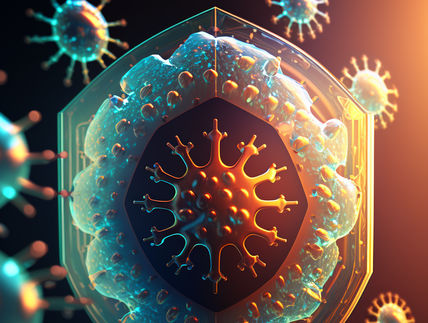Candidate vaccine against deadly pneumonia in foals
Advertisement
Rhodococcus equi bacteria can cause “rattles”, a potentially lethal disease in foals which is characterized by pneumonia and gastro-intestinal infection. Despite the severity of this disease, a vaccine against it is not available yet. Researchers at the Groningen Biomolecular Sciences and Biotechnology Institute (GBB) of the University of Groningen, The Netherlands have now developed a promising candidate vaccine in collaboration with MSD Animal Health in Boxmeer, The Netherlands. This study was recently published in the scientific journal PLoS Pathogens.*
R. equi is one of the key pathogens in foals aged between one and six months, particularly in those being raised in crowded environments at this age. Pneumonia is the most common manifestation. The disease is called rattles because it is often accompanied by a rattling sound when breathing. It is usually treated with an extended course of antibiotics and/or immune plasma. If the infection is diagnosed too late, antibiotics are often no longer sufficient to cure the disease, and death may occur within weeks.
R. equi is a soil bacterium and since manure is very frequently contaminated with R. equi from healthy adults, bacterial numbers in the soil increase. In crowded horse breeding farms, when conditions are dry and dusty, R. equi becomes aerosolized and is inhaled into the lungs where it can cause pneumonia. Due to the presence of R. equi in the soil and dust outside, the disease of foals is a re-occurring problem. A vaccine for foals would be a solution for environments where large numbers of foals are raised and the risk of infection is high.
With the aim to develop a vaccine, Robert van der Geize – a member of Prof. Lubbert Dijkhuizen’s group of the Groningen Biomolecular Sciences and Biotechnology Institute (GBB) of the University of Groningen – and his colleagues started looking for virulence factors and/or attenuation targets in the pathogenic bacterium. They found these in a number of genes responsible for steroid metabolism. When these genes are defective, this specific metabolic process cannot occur, rendering the pathogen ineffective.
This way, Van der Geize and his co-authors demonstrated that the R. equi steroid metabolic process is of crucial importance in causing rattles and, consequently, an appropriate starting point for the further development of a vaccine against this disease.
Ultimately, the Groningen researchers and MSD Animal Health’s Microbiological R&D department at Biosciences Center Boxmeer together created a mutant R. equi, in which a number of genes important for disease expression were shown to have been removed. This mutant did indeed manifest impaired ability to escape the host immune defenses, which means that it can be attacked and eliminated by the foal. Further research showed that foals aged between 2 and 5 weeks that had been given oral treatment with this R. equi vaccine were protected against infection by the pathogenic variant of the bacterium.
A patent application is pending and MSD Animal Health is currently preparing for a large-scale field study with the candidate vaccine. If the vaccine is eventually marketed, it can also contribute to the further reduction of the veterinary use of antibiotics.





















































